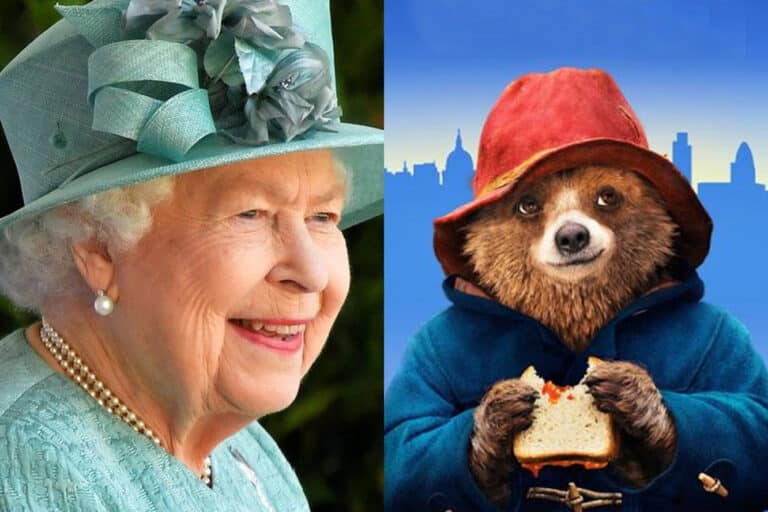Much has been made of HM Queen Elizabeth II’s relationship with Paddington Bear in recent days.
Many mourners have opted to leave the children’s bear in lieu of flowers at sites that have become a focal point for remembrance in recent days, while The Royal Parks even asked people not to leave marmalade sandwiches at floral areas in their parks.
The increasing number of Paddington-themed tributes have been left in reference to a TV sketch the late monarch filmed with the iconic bear for her Platinum Jubilee celebrations.
Now Professor Angela Smith, professor of language and culture at the University of Sunderland, the author of Paddington Bear: A Case Study of Immigration and Otherness, has taken a closer look at the cultural significance of the Queen’s relationship with Paddington.
In the paper, Professor Smith goes back to Paddington’s origins, Britain in 1958, a time of widespread racism, and growing multiculturalism, into which a small bear from ‘Darkest Peru’ arrives with a unique perspective on British life.
Smith suggests this very unique point of view is perhaps the reason why HM The Queen wanted to ally herself to the character, who has been a part of British culture since his first book was published in 1958 – almost as long as the Queen’s reign itself.
She said: “As an illegal immigrant who was nevertheless keen to assimilate into British culture, the various books that appeared after 1958 showed Britain from an outsider’s point of view, gently poking fun at the more risible aspects of British culture whilst also embracing the perceived positives.”
Smith adds that this gentle satire was also in the minds of sketch writers for the Queen’s 2012 Olympic sketch with James Bond – screenwriter Frank Cottrell Boyce co-wrote both sketches.
“The 2012 London Olympics had seen the queen embrace the satirical side of British culture through the James Bond-themed sketch, so the 2022 Jubilee’s use of another British icon was not entirely unexpected,” she explained.
Smith even suggests that the use of immigrant Paddington, rather than another much-loved bear from British culture, Winnie the Pooh, could have been a subtle way of marking the monarch’s disapproval at recent tightening up of immigration laws under former home secretary Priti Patel: “Both are global in their appeal, yet Paddington is the one whose identity can be linked to immigration and not the nursery,” she said. “It could be read as a subtle marker of regal disapproval at recent draconian immigration laws if we see the choice as being between these two iconic British bears.”
Smith adds that Paddington Bear and HM The Queen alike are being remembered by people of all ages, from the children who perhaps remember the pair best through that 2022 Jubilee sketch, to adults who have grown up with both as part of the national backdrop.











